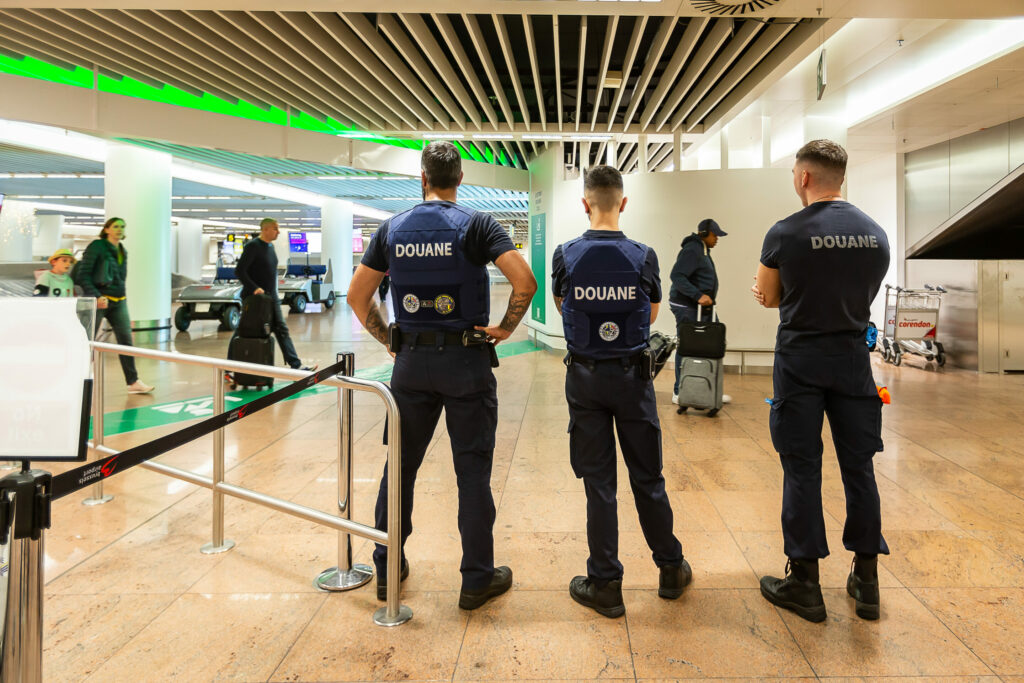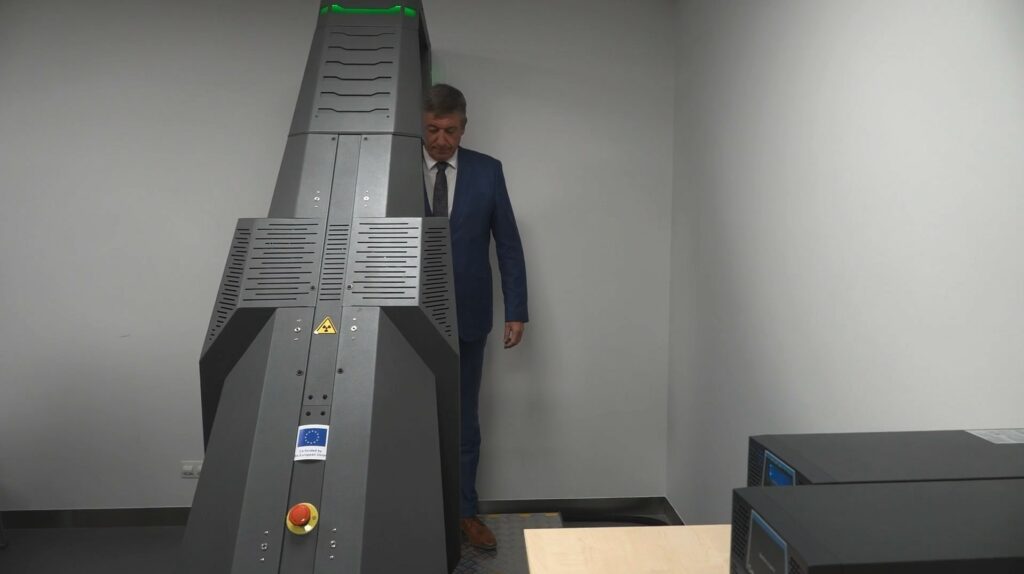Belgian customs have a new tool at their disposal in the fight against drug trafficking and drug couriers. At Brussels Airport, Federal Finance Minister Jan Jambon (N-VA) presented a body scanner to detect drugs that people are smuggling inside their bodies.
21 people smuggling 'boletas' – little packages of cocaine or heroin that people swallow, or insert vaginally or anally – were arrested at Brussels Airport in Zaventem last year. These packages on average weigh between 500 grams and 1.5 kg. But the heaviest found at Brussels Airport weighed 2.283 kg, Kristian Vanderwaeren, Administrator General of Customs and Excise, told The Brussels Times.
"Imagine putting that amount of drugs in your body. If you know that an overdose of cocaine occurs on average after about five grams, we do not need to draw a picture of what happens when a 500g-package tears in your body," said Vanderwaeren.
Body cavities
Finance Minister Jambon, whose department is responsible for Belgium's customs, stressed that the most spectacular catches are made at the Port of Antwerp, but airports are increasingly used as an access route in recent years.
"Criminals sometimes use surprising but also dangerous techniques," he explained. "One technique is the 'boleta', in which the smuggler essentially serves as a drug container by inserting the packaged drugs into body cavities."
Detecting drugs concealed with the naked eye is difficult, if not impossible. And carrying out a check on a suspected person is time-consuming and physically unsafe – for the customs officer as well as the suspect.
"Until now, people suspected of smuggling drugs in their bodies first had to take a urine test, and if it was positive, they were taken to hospital for a scan," said Vanderwaeren.
The process used to take at least three hours, but often much longer, as suspects had to be transported to the UZ Brussels hospital on the other side of the Capital Region. "When taking traffic into consideration, it often takes much longer than three hours."
The new scanner allows the entire process to be carried out on-site. "After the urine test, we can perform the scan at the airport. That way, it does not have to take longer than an hour," Vanderwaeren said.
People who turn out to be innocent are allowed to leave sooner, but the time gain is also an advantage for the drug mules themselves. "The cocaine or heroin they transport is often 90% pure. If such a thing bursts while inside their bodies, it is a guaranteed death," he stressed.
A miserable trade
Of all drug cases intercepted at Brussels Airport, 25% are people who have swallowed or inserted packages of drugs, says Vanderwaeren. "Extra attention has been focused on flights from Latin America and Africa, through which cocaine and heroin 'boletas' often enter our country."
"I don't think I have to convince anyone that drug violence has our society in its grip. That has been the case for some time, but it is unfortunately still the case," said Jambon. "Every week, we are confronted with shootings in the metro stations of our capital or explosions in Antwerp."
He stressed that drugs are hidden in all corners of society, with all the associated violence, safety and health problems. "Contrary to what some people claim, drugs never bring happiness. They will always cause misery and, ultimately, crime."
"We must tackle the problem more vigorously, with an integrated plan in which customs also plays its full role as part of our security policy," said Jambon. "Our customs services help to dry up the supply of drugs. They enter the country via all channels: by road, rail, water and also by air."

Customs officers at Brussels Airport, in Zaventem, Friday 04 November 2022. Credit: Belga/James Arthur Gekiere
To this end, the new body scanner offers fresh solutions. "Just as we scan vehicles, luggage and containers, we can now also scan people for the import of drugs," the minister explained.
The device will greatly speed up the procedure: suspects can be scanned at the airport, with an analysis by a radiologist at a distance. This will cut the detection time and increase the chance of catching smugglers. Additionally, a special toilet will be installed at the beginning of April – allowing the entire procedure to take place in more hygienic conditions.
The radiation dose in the body scanner – which was licensed by the Federal Agency for Nuclear Control (FANC) – remains well below the legal limits. The technology contributes to a safer and more efficient fight against drug trafficking without unnecessary risks for suspects and law enforcement agencies.
"Thanks to this innovation, customs hopes to better deter smugglers and significantly reduce the transit of drugs via Brussels Airport. The implementation of this technology marks an important step forward in the Belgian fight against international drug trafficking."

